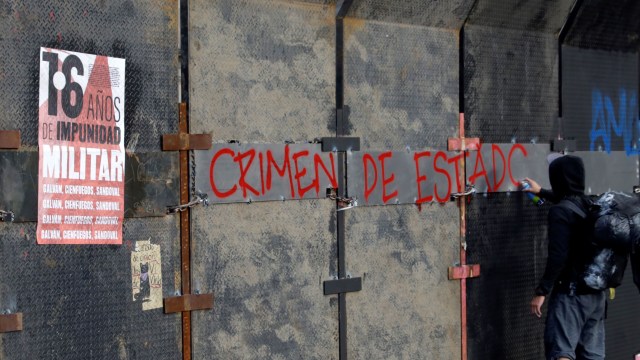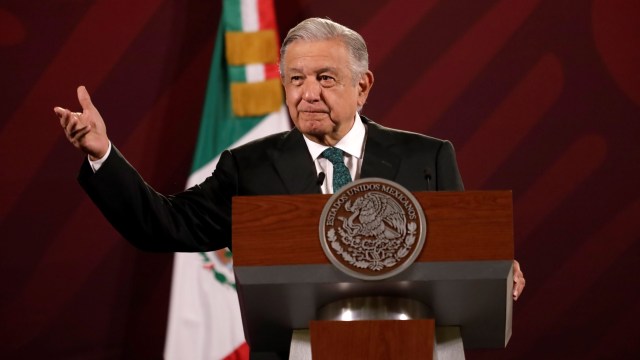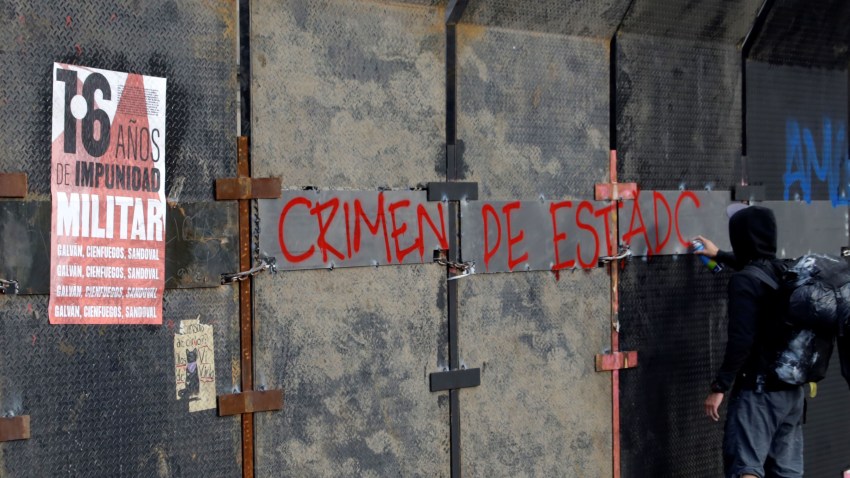Hello everyone. Today at WPR, we’re covering Latin America’s trend toward more militarized security strategies and whether Mexico’s recent economic success can last.
Now, here’s out take on today’s top story:
Niger coup: The Economic Community of West African States, or ECOWAS, threatened military action against the military junta in Niger if it does not restore the country’s democratically elected president, Mohamed Bazoum, to power within a week. The regional bloc also imposed punishing economic sanctions effective immediately, including closing borders with Niger, banning commercial flights, halting financial transactions, freezing the country’s assets and suspending aid delivery. (New York Times)
Our Take: In stark contrast to the bloc’s immediate reactions to recent coups in the region, which have been criticized as tepid, ECOWAS’ response to the coup in Niger is notably biting. The bloc, however, may have course-corrected too far in the opposite direction this time.
Harsh sanctions that were ultimately leveled against Mali after a second coup in 2021, for instance, actually solidified popular support for the military junta that seized power. ECOWAS essentially became another external enemy, alongside France, for the junta to brandish in mobilizing public opinion.
Even if those same trends don’t play out in Niger, there are still two significant obstacles to reversing the coup:
So many high-ranking military officers in Niger ended up endorsing the junta that it would be unrealistic to expect them all to either resign or accept accountability for the coup. But it would be equally unrealistic to expect Bazoum to return to power with the same officers in charge of the military, leaving the country at an impasse.
Internal security challenges in several ECOWAS states mean it is unlikely that members would be able to devote the military resources needed to intervene in Niger as the bloc did in Gambia in 2017. Any intervention in Niger would also be more logistically demanding than the Gambia operation, probably requiring external assistance that would create problematic political optics in the region.


Latin America Is Embracing—and Empowering—the Military
When Mexican President Andres Manuel Lopez Obrador entered office, he promised to demilitarize the country’s approach to fighting violent criminal organizations and drug-trafficking groups. Yet, within months of ascending to the presidency, he embraced the military as a key ally in his overall agenda.
He isn’t alone, though. As columnist James Bosworth writes, Latin America is trending toward more militarized security strategies, with the risk of expanding the military’s role and influence in political and economic affairs.
Mexico’s Latest Economic ‘Moment’ Might Be Just That
Meanwhile, Mexico’s economy has had a surprisingly good year, with a promising outlook ahead that contrasts starkly with many of its peers, both in Latin America and around the world.

Mexico is no stranger to being in the economic spotlight. In the past though, optimistic expectations for the country’s long-term prospects didn’t pan out. Will it be any different this time? Eduardo Arcos takes a look.

Question of the Day: United Nations experts have said which African country is again supplying M23 rebels in the Democratic Republic of the Congo?
Find the answer in the latest WPR Weekly Quiz, then read Sophie Neiman’s in-depth breakdown of the M23 conflict in eastern Congo and its effects on the region.

Police clashed with thousands of opposition protesters in Bangladesh’s capital Saturday, using tear gas and rubber bullets to disperse demonstrations staged by the opposition Bangladesh Nationalist Party and its allies, who are demanding that PM Sheikh Hasina step down so that a caretaker government can oversee upcoming elections in January.
Hasina has faced major protests over the past several years, as she and her party have consolidated power and closed democratic spaces in Bangladesh. As a result, the run-up to the elections is likely to become increasingly contentious, as Shehryar Fazli wrote in February:
Hasina Is Pushing Bangladesh’s Democracy to the Breaking Point
Feb. 14, 2023 | Sheikh Hasina is facing rising protests, but with a year until elections, her crackdown on Bangladesh’s democracy will likely continue. Read more.
Voters in the Central African Republic went to the polls Sunday for a referendum on a new constitution that would extend presidential terms to seven years, up from five, and remove the previous two-term limit. The proposed change would allow President Faustin Archange Touadera to seek another two terms in office and would likely entrench his party in power indefinitely, analysts say.
Touadera has tightened his grip on power since first being elected in 2015, but he still faces plenty of opposition, both politically and from armed groups in the country. As Vianney Ingasso, John Lechner and Marcel Plichta wrote in January, international media has focused on the role that external actors, like the Wagner Group, are playing in CAR, but it will ultimately be local actors who determine whether Touadera’s gambit succeeds or fails:
Wagner Is Only One Piece in Central African Republic’s Messy Puzzle
The Central African Republic’s president has secured a referendum on constitutional reform that would allow him to run for a third term. Read more.
That’s all for today’s Daily Review. Coming up, we’re covering the human rights landscape in Burundi and the Taliban’s links with al-Qaida and other terrorist groups in Afghanistan.
Have a great day,
Jakob Cansler
More From WPR
- Paul Poast on the prospect of a nuclear-armed Saudi Arabia.
- Anne Lauder & Hilary Matfess on the effect of private military companies on aid delivery.
- Sophie Neiman on the M23 conflict in eastern Congo.
- Frida Ghitis on this year’s El Nino and Peru.

